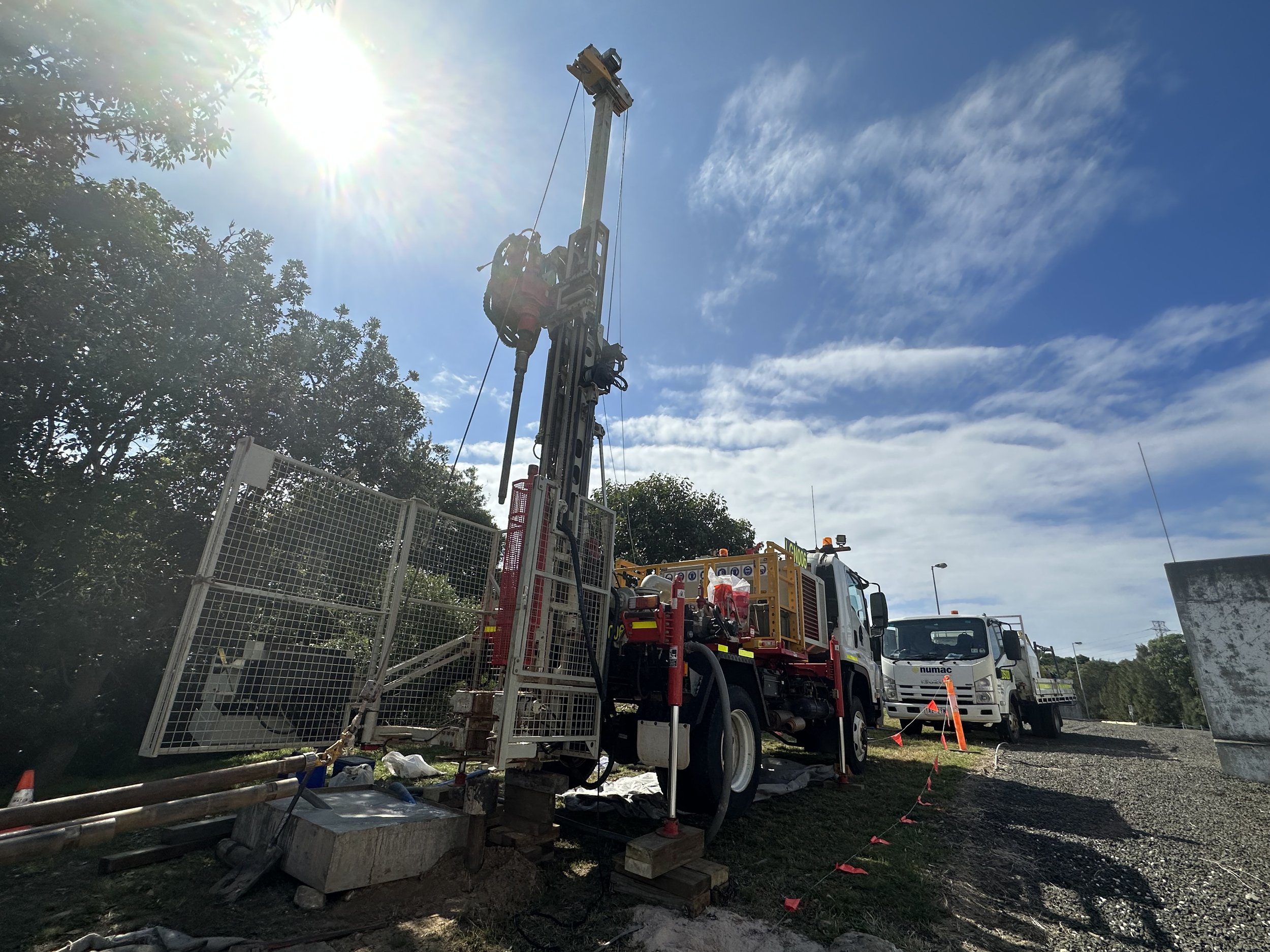Are Geotechnical Boreholes Putting Groundwater at Risk
Geotechnical drilling projects are often not focused on groundwater impacts or qualificaitons of the operators when compared to contaminated land and water well drilling.
Drilling geotechnical boreholes might seem straightforward, but when they intersect groundwater, you could unknowingly trigger serious regulatory and environmental risks. Failure to comply with aquifer protection measures can lead to contamination, legal repercussions, and hefty fines. Here's what you need to know to avoid these pitfalls and ensure your project stays on the right side of the law.
Geotechnical drilling investigations that intersect groundwater, even though not considered water wells, still falls under specific regulatory requirements in both NSW and Queensland. These activities are subject to groundwater protection standards to prevent contamination and aquifer interference, even when licensing exemptions may apply. Here's an overview of how such boreholes are regulated in each state:
New South Wales (NSW)
Exemption for Geotechnical Boreholes:
Geotechnical boreholes are not classified as water supply works under the Water Management Act 2000 (NSW) if they are solely for engineering, construction, or environmental purposes and do not extract or interfere with significant quantities of groundwater.
A Water Access Licence is not required if no water is extracted for use, but Aquifer Interference Approvalmay be needed if the borehole intersects an aquifer.
Compliance Obligations:
Drilling must adhere to the principles of groundwater protection as outlined in the Minimum Construction Requirements for Water Bores in Australia. These include:
Proper sealing of boreholes to prevent contamination or inter-aquifer leakage.
Detailed logging and reporting of groundwater encountered during drilling.
Licensed Driller Requirement:
While a licensed driller is not explicitly required for shallow geotechnical boreholes, if the work risks aquifer interference or involves complex drilling methods, employing a licensed driller is recommended to ensure compliance.
Queensland (QLD)
Regulatory Scope:
Under the Water Act 2000 (QLD), geotechnical boreholes are generally exempt from requiring a water bore licence if they do not access water for use. However, the boreholes must still comply with aquifer protection standards and construction guidelines, particularly when intersecting groundwater.
Licensed Driller Requirement:
A licensed driller is not required for shallow, temporary geotechnical boreholes drilled for purposes unrelated to water extraction, provided:
The borehole does not penetrate artesian formations or require long-term casing.
The activity complies with the Minimum Standards for Construction and Reconditioning of Bores in the Great Artesian Basin if artesian aquifers are encountered.
Aquifer Protection Measures:
Any borehole intersecting groundwater must:
Be properly sealed to prevent inter-aquifer contamination.
Be decommissioned in accordance with best practices if abandoned.
Notification Requirements:
In some regions, the local water resource plan or regulatory authority may require notification or approval before drilling geotechnical boreholes that intersect groundwater, especially in environmentally sensitive areas.
Best Practices for Geotechnical Boreholes in Both States
Pre-Drilling Assessments:
Assess the likelihood of intersecting groundwater during borehole planning.
Conduct a desktop review of local water sharing or resource plans for area-specific obligations.
Drilling and Decommissioning:
Follow the Minimum Construction Requirements for Water Bores in Australia for borehole design, sealing, and decommissioning.
Ensure the integrity of aquifer separation during drilling and after borehole completion.
Documentation and Reporting:
Maintain accurate records of drilling activities, including depths, encountered groundwater, and sealing methods.
Provide reports to the relevant water authority if required, especially if artesian aquifers are penetrated.
Engage with Authorities:
Consult with the relevant state water department or local authority to determine if your activity triggers additional requirements under water resource or aquifer interference regulations.
While exemptions exist, compliance with groundwater protection standards is critical. Consulting with licensed drillers or hydrogeologists can help navigate the regulatory landscape and ensure environmental and legal obligations are met.

